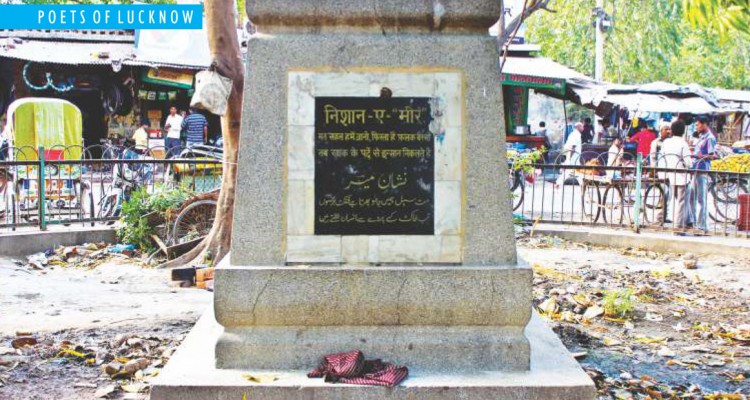Meer Taqi Meer (1723-1810)
Who was this Meer Taqi Meer about whose ghazal writing Sheikh Muhammad Ibrahim Zauq, poet laureate of the Mughal Court in the 19th century said that everybody including him has tried to imitate the style of Meer but without success:
“Na Huwa Par Na Huwa Meer Ka Andaaz Naseeb,
Zauq Yaron Ne Bahut Zor Ghazal Mein Maara”
It is believed that in ghazal writing no one excelled Meer and this is acknowledged by prominent poets for centuries. Nasikh observes that he who does not appreciate the greatness of Meer is himself devoid of worth. Meer’s poems are still regarded as models of good ghazal writing.
The poet was born in Agra around 1723 in a family of Arab origins. He left Agra for Delhi as a teenager after the death of his father. He lived in the old part of Delhi during the last days of Mughal rule. His poetry was very popular and he rose rapidly to fame but after Delhi was devastated by Ahmad Shah Abdali in 1748, Meer moved to Lucknow at the invitation of Nawab Asif-ud Daulah. The poverty stricken poet writes in praise of Lucknow:
“Lucknow Dilli Se bhi Behtar Hai,
Ki Kisu Dil Ki Laag Idhar Hai”
One evening Meer proceeded to a mushaira with a hastily composed ghazal and dressed in the fashion of Delhi which was not in vogue in Lucknow. His presence made the smartly dressed people of Lucknow laugh. When his turn came to recite the ghazal, people asked Meer who he was? When they realised this was the great Meer Taqi Meer they apologised.
Over time Nawab Asif-ud Daulah granted him a monthly allowance. Meer was chosen by Colonel Scott, the Resident to visit Fort William College in Calcutta but due to his infirmity and old age he did not travel and died in Lucknow.
The much younger Mirza Asadullah Khan Ghalib who was a teenager when Meer died in 1810 paid his tribute by saying that he, Ghalib is not the only magic of poetry for it is said that before him there was Meer:
“Rekhta Ke Tum Hi Ustaad Nahi Ho Ghalib,
Kehte Hain Agle Zamane Mein Koi Meer Bhi Tha”

The ghazal is an important aspect of Urdu poetry and as Meer excels in ghazal writing he is naturally regarded to be a great Urdu poet. His place is unequalled in the history of Urdu literature, giving him the title of Khuda-e Sukhan, or the god of poetry.
It is a tragedy that Meer who gave everything he ever had to literature does not even have a grave in his name that had once stood near the present day City Station in old Lucknow, that is famous as a city of poets.
Today a sign stone with Meer Taqi Meer Marg written on it stands near the same place. Only recently the stone was chipped and the writing on it had faded. Lucknow Society alerted the matter to the Nagar Nigam that has renovated the plaque and installed it near Nishan-e Meer, a memorial opposite the equally historic site of the Rifah-e Aam Club, that is also facing decay.
It is hoped that all creative citizens of the city are recognised and celebrated in their life time unlike Meer who complained of what use is a doctor who visits the grave with medicine when the patient is no more:
“Baad Marne Ke Meri Qabr Pe Aaya Woh Meer,
Yaad Aai Mere Isa Ko Dawa Mere Baad”


